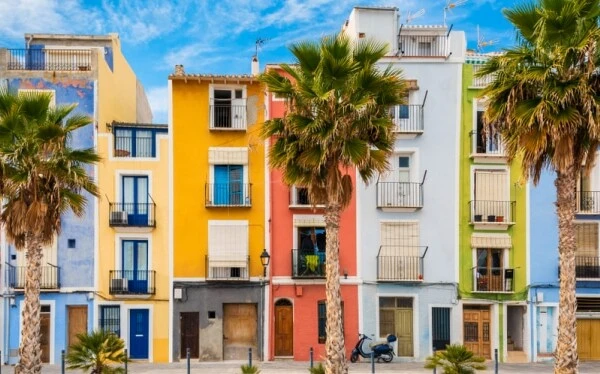Taxes on Real Estate Transactions in Spain: What You Need to Know

Purchasing property in Spain has long been a desirable goal of many an expat or holidaymaker. Whether it is for enjoyment or investment, the fact that buying real estate is one of the main ways to obtain the famous Golden Visa - along with Spanish residency - means that its popularity is sure to grow. This is especially true among British citizens who can no longer benefit from free movement in the EU.
However, despite the clear benefits of buying property in Spain, it’s also important to understand the associated taxes. And so, in this article, we will explain which taxes need to be paid by both buyers and sellers of property in Spain.
How Much Tax Should I Expect to Pay?
Aside from the property itself, one of the main costs involved when buying real estate in Spain is the tax associated with the purchase of the property. Some taxes apply to the buyer and others to the seller, and the variety of taxes enforced is dependent on whether the real estate is a new or existing property.
As these cumulative taxes generally amount to between 6% and 12% of the cost of the property, it is important to factor in tax considerations to your financing plans from the beginning.
Property Taxes for the Purchaser
Existing Properties
ITP (Impuesto de Transmisiones Patrimoniales) is an indirect tax that must be paid each time an exchange of existing property, such as a house or car, occurs between living persons. The person acquiring the capital is the one who pays, with the amount due generally being between 6% and 10%.
The exact rate will depend on the rules imposed by the Autonomous Community in which the purchase occurs. In some regions, it may vary in accordance with the value of the property, while in others, the situation of the buyer has an impact. For example, if they are a first-time or young buyer, or have a large family, the amount can be reduced. The tax is paid to the Agencia Tributaria via Modelo 600.
New Properties
VAT (IVA) is due on brand new properties being purchased for the first time from the builder or developer. The rate is 10% of the purchase price in most cases unless the property is a Vivienda de Protección Oficial (public or social housing), in which case the amount is generally 4%. However, this may vary according to the type of social housing and the Autonomous Community it is located in.
A final tax that the buyer may be liable to pay on purchases of new properties is the Documented Legal Acts tax, known as IAJD or AJD (Impuesto sobre Actos Jurídicos Documentados), similar to stamp duty, and applied to notarial acts. Again, the rate is set by each Autonomous Community and differs between 0.5% and 2% across the country.
Property Tax for the Seller
Plusvalia tax is a local tax determined and applied by the municipal government on properties that are sold. The seller must take a copy of the property deed to the City Hall, or wherever local taxes are paid, and complete a form. They will then receive a letter informing how much needs to be paid. Plusvalia is calculated based on the cadastral value of the property - i.e. the rateable value as determined by the municipal government - and is usually much lower than the market value of real estate.
The length of ownership also affects the level of plusvalia tax, with the longer the period the higher the amount of tax to be paid. Therefore, to determine the amount due, the land value is multiplied by the number of years of ownership and by an annual percentage decided by the municipality, the tax rate is then applied to the result to arrive at the final amount.
What is this tax for?
The purpose of this is to tax the increase in value of the land where the property sits due to improvements in the surrounding areas that have been carried out by the municipal government or the wider community.
It has to be paid within a maximum of 30 days from the date of sale. If a loss is made on the sale of a property then the plusvalia does not need to be paid.
If the seller is not a tax resident in Spain, plusvalia tax must be held by the buyer from the purchase price and submitted on the seller’s behalf in Spain.
Specialist Help in Spain
If you’re looking to buy or sell property in Spain and need guidance on the process, we’re here to help. Contact the team at Strong Abogados below, tell us about your situation, and one of our specialist lawyers will be in touch to schedule a consultation.